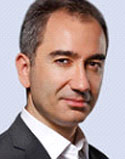The illiberal Mind

By Mustafa Akyol
April/18/2015
About 2.5 years ago, I wrote a piece titled, “Turkey: Fears of Illiberal Democracy.” I argued that with the subordination of the Kemalist military-bureaucratic establishment by elected politicians, Turkey had finally consolidated its electoral democracy. However, this did not guarantee these elected politicians would act in liberal ways. There were rather worrying signs that Turkey could be heading towards what some political scientist call, “illiberal (i.e. authoritarian) democracy.”
These signs have only increased since then, and Turkey has growingly become the illiberal democracy par excellence. We have an elected government which keeps winning the ballots, giving it popular legitimacy, but it is also demonizes its opponents, intimidates any critical press and curbs the rule of law. When it is criticized for these authoritarian practices, the government’s response is only, “well, the people like us” — “the people” being roughly half of the society. Meanwhile the more sophisticated apologists of the government argue that “extraordinary measures” are necessary for extraordinary times. They, in other words, resort to the exact “revolutionary” narrative that their Kemalist predecessors used for almost 90 years.
There is no doubt that this illiberal paradigm deserves powerful criticisms. But it also begs analysis. For authoritarianism does not come from nowhere. It comes from a certain mindset, which sees its way as the only way to govern a society.
One aspect of this mindset is the state having an overbearing role in human affairs. The state, with this in mind, exists not only to secure our borders and streets, provide us with education and healthcare and collect our trash, but also has the right, if not the mission, to lead society to Truth, by raising Truth-seeking generations and correcting deviants who stray from the Truth.
Mind you, this Truth can be anything. It can be dialectical materialism or Aryan Supremacy. It can be a utopia of a Westernized Turkish society, like the Kemalist model, or a utopia of a re-Ottomanized Turkish society, like the current Turkish model. There is no doubt that these models are based on a “goodwill” of sorts. The problem is they claim to know what is good for all of us.
The other fundamental aspect of the illiberal mind is a powerful belief in conspiracy. Since its ideals are so evidently good, its opponents and even its critics can be nothing but manifestations of evil: a well-organized, wicked, nefarious evil. This nefarious force can be “the bourgeoisie,” “the enemies of the people, “the Jews,” the Freemasons, the liberals, or all of them. They cannot be allowed to carry out their evil plots under deceptive shields such as “freedom of speech” or “freedom of assembly.”
Those freedoms might be okay for normal people, but the enemies of the Truth and the Revolution are not normal people.
Sadly, this is the kind of ideology Turkey’s ruling Justice and Development Party (AKP) has been pumping into society for the past two years. To be fair, it barks much more than it bites. “The enemies within” are not arrested en masse, tortured, or killed, as in dictatorships. Turkey, after all, is still operating under the European Union legal standards, and, ironically, the AKP itself advanced these standards in the early 2000s, when it had a totally different mindset. Its current and unabashedly illiberal mindset, however, is worrying. But it is also an interesting experiment to watch, for its exact destination is completely unknown at this point.
Source: http://www.hurriyetdailynews.com/the-illiberal-mind.aspx?pageID=449&nID=81212&NewsCatID=411




 Moderate Islamist here
Moderate Islamist here


0 comments:
Post a Comment